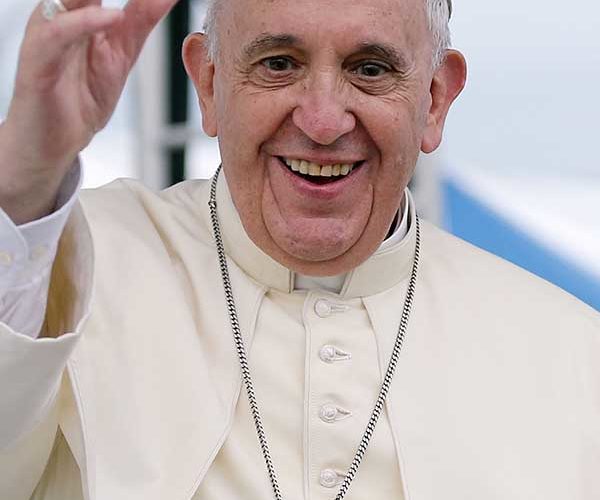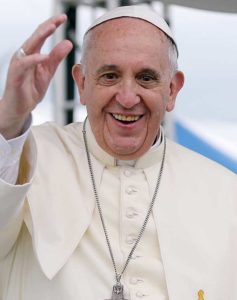Why I am Not a Catholic
Podcast: Play in new window | Download
Subscribe: RSS
Date written: 24 September 2015
SUBJECT: Catholicism
TITLE: Why I am not a Catholic
PROPOSITION: In this lesson I will set forth some scriptural reasons for not being a Catholic.
OBJECTIVE: That each will seek the Bible as our sole source of authority and Jesus as our only head in the church today.
INTRODUCTION:
1. Read: 2 Corinthians 11:13-15
2. About the Text:
1) Paul’s comments here are a warning to us today.
2) Satan will use the appearance of righteousness to deceive.
3) We should never put our trust in men regardless their perceived stature.
4) Psalm 146:3-4 says, “Put not your trust in princes, in a son of man, in whom there is no salvation. When his breath departs, he returns to the earth; on that very day his plans perish.”
5) So many want to put their faith in something or someone they can see.
6) They end up elevating men to positions and places of power that only God has.
7) This is what we see in the Catholic church today in the person of the pope.
8) Yet, many are persuaded by this kind of thinking.
9) I would like to offer a biblical alternative to Catholicism.
10) Why am I not a Catholic?
3. Ref. to S, T, P, O, and A.
DISCUSSION: I am not a Catholic because . . .
I. The Church is not a Political Institution
1. The Catholic Church is a political institution and has been one for thousands of years.
1) It maintains its own worldly capital – Vatican City.
2) The Vatican is its own country.
3) The emissaries of the Vatican are diplomats and have political privileges.
4) It has its own security force and army.
5) It seeks to coerce governments through political control.
2. Contrast this picture with what Jesus told the apostles in Luke 22:24-27.
1) Jesus did not want the apostles acting like the gentiles as “benefactors” over others.
2) Jesus said, “For even the Son of Man did not come to be served, but to serve, and to give His life a ransom for many” (Mark 10:45).
3. In response to Pilate’s question: John 18:36 “Jesus answered, ‘My kingdom is not of this world. If My kingdom were of this world, My servants would fight, so that I should not be delivered to the Jews; but now My kingdom is not from here.’”
4. It was never Jesus’ intention to set up a worldly political power through the church, yet this is what Catholicism has done and is.
5. This is why I cannot be a Catholic.
II. I could never call a mere-man “Holy Father.”
1. Even Jesus did not refer to himself in such a way.
2. In fact, just the opposite, Jesus only called one a holy Father, and that was God the Father.
3. “Our Father in heaven, Hallowed be Your name” (Matthew 6:9).
4. Jesus forbade the use of religious titles among His followers (Matthew 23:8-12).
1) Some say that Paul was called a “father” (1 Corinthians 4:15).
2) Paul was simply referring to his being the one who oversaw their conversion.
3) Catholics use the term “father” as a religious title for any priest, but not for their laity.
4) And they call men “father” even when they haven’t been instrumental in conversion.
III. I cannot accept the authority of oral tradition over scripture.
1. Catholics believe in something called the Living Magisterium.
1) The Catholic Encyclopedia says the following about this: “The Protestant principle is: The Bible and nothing but the Bible; the Bible, according to them, is the sole theological source; there are no revealed truths save the truths contained in the Bible; according to them the Bible is the sole rule of faith: by it and by it alone should all dogmatic questions be solved; it is the only binding authority. Catholics, on the other hand, hold that there may be, that there is in fact, and that there must of necessity be certain revealed truths apart from those contained in the Bible; they hold furthermore that Jesus Christ has established in fact, and that to adapt the means to the end He should have established, a living organ as much to transmit Scripture and written Revelation as to place revealed truth within reach of everyone always and everywhere.”
2) “Properly speaking, this magisterium is a teaching authority; it not only presents the truth, but it has the right to impose it, since its power is the very power given by God to Christ and by Christ to His Church. This authority is called the teaching Church. The teaching Church is essentially composed of the episcopal body, which continues here below the work and mission of the Apostolic College.”
3) “At the head of this episcopal body is the supreme authority of the Roman pontiff, the successor of St. Peter in his primacy as he is his successor in his see. As supreme authority in the teaching body, which is infallible, he himself is infallible.”
2. The implication of this teaching is that the Bible is not sufficient in and of itself to reveal all of God’s will to us today.
3. However, listen to the words of the apostle Paul when he said to Timothy, “But you must continue in the things which you have learned and been assured of, knowing from whom you have learned them, and that from childhood you have known the Holy Scriptures, which are able to make you wise for salvation through faith which is in Christ Jesus. All Scripture is given by inspiration of God, and is profitable for doctrine, for reproof, for correction, for instruction in righteousness, that the man of God may be complete, thoroughly equipped for every good work” (2 Timothy 3:14-17).
IV. Jesus is the only Living Head of the Church.
1. The Catholic Church says that the pope is the head of the church.
1) “The title pope, once used with far greater latitude (see below, section V), is at present employed solely to denote the Bishop of Rome, who, in virtue of his position as successor of St. Peter, is the chief pastor of the whole Church, the Vicar of Christ upon earth.”
2) The second council of Lyons stated, “the holy Apostolic see and the Roman pontiff holds the primacy over the whole world; and that the Roman pontiff himself is the successor of the blessed Peter Prince of the Apostles and the true Vicar of Christ, and the head of the whole Church, and the father and teacher of all Christians.”
2. Jesus is the head of the church.
1) Ephesians 5:23 – “For the husband is head of the wife, as also Christ is head of the church; and He is the Savior of the body.”
2) Colossians 1:18 – “And He is the head of the body, the church, who is the beginning, the firstborn from the dead, that in all things He may have the preeminence.”
3. Jesus is the chief shepherd also.
1) 1 Peter 5:4 – Chief Shepherd
2) Hebrews 13:20 – Great Shepherd of the Sheep
CONCLUSION:
1. Why am I not a Catholic?
1) The Church is not a Political Institution
2) I could never call a mere man “Holy Father.”
3) I cannot accept the authority of oral tradition over scripture.
4) Jesus is the only living head of the church.
2. Invitation


